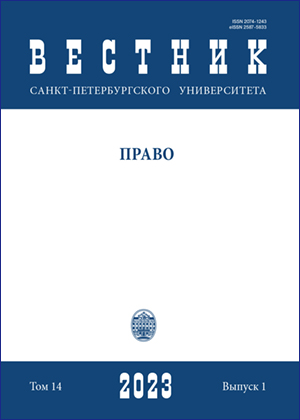Digital transformation of the investigation process as an objective reality
DOI:
https://doi.org/10.21638/spbu14.2023.106Abstract
The article examines the implementation of one of the main trends of the IV information revolution, the digital transformation of society, in law enforcement. By comparing the categories of “digitalization” and “digital transformation”, the conclusion is justified that digitalisation of investigation is only an element, a condition of digital transformation. The approach of various authors to the need for digitalisation and the essence of digitalisation are analysed. The independent importance of the category “digital transformation of the investigation process” is justified. It is stated that an “ideological” basis of the digital transformation of the investigation process should be a unified private theory, and the theory of electronic digital forensics developed by the author is offered. The analysis of the influence of digital transformation on crime prediction is marked by the growing importance of Big Data analysis. The impact of digital transformation on forensic thinking and algorithmic investigation is analysed. It is stated that new concepts developing within the framework of digital transformation contribute to development of program specific aides to inductive-deductive activity of an investigator, as well as prognostic methods of investigation. Considering the concept of cyber-investigator and appreciating the idea of robotization of some aspects of investigative activity we come to a conclusion that until full-scale development of artificial intelligence, at least equal to human, it will be only an auxiliary tool or “remote hands” of human investigator. As a result of the study, the main tasks of law enforcers, scientists and the main vectors of development of the digital transformation are identified.
Keywords:
digitalization, digital transformation, forensic thinking, algorithmization of investigative activity, forensic forecasting, cyber investigator
Downloads
References
Downloads
Published
How to Cite
Issue
Section
License
Articles of "Vestnik of Saint Petersburg University. Law" are open access distributed under the terms of the License Agreement with Saint Petersburg State University, which permits to the authors unrestricted distribution and self-archiving free of charge.






